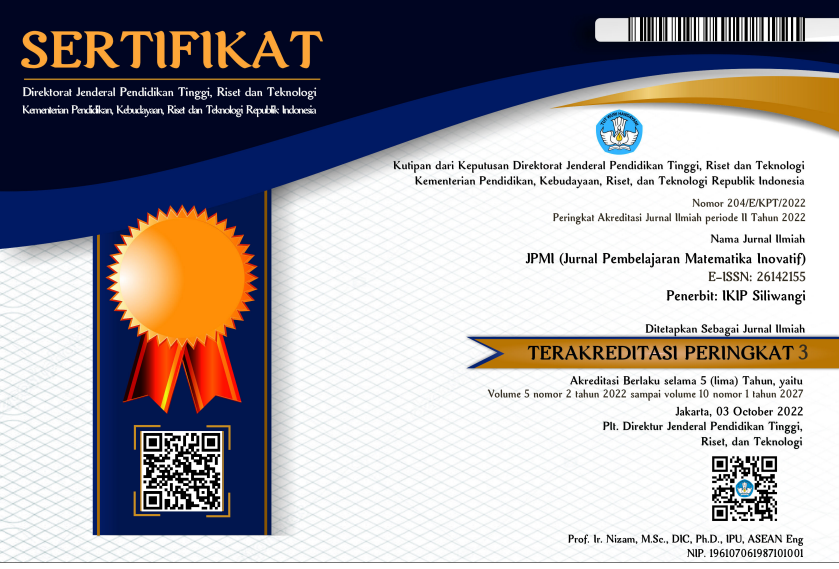Publication Ethics
This statement describes the ethical behavior of all parties involved in the publication of an article in our journals, including the authors, the editors, the peer-reviewers and the publisher. This guideline regulates the practices of journal management, the roles of editors, peer reviewers, and authors, with the aim of maintaining the quality of scholarly publications. The Code of Ethics for Scientific Publication prioritizes three fundamental ethical principles in publications (based on LIPI Regulation no 5. 2014): Neutrality: Upholding the absolute absence of conflicts of interest in the management of publications, Justice: Bestowing authorship rights upon those individuals who hold legitimate entitlement as authors. Honesty: Enforcing rigorous measures to prevent the occurrence of duplication, fabrication, falsification, and plagiarism (DF2P) within the realm of academic publication.
Duties and Responsibilities of Scientific Journal Manager are Determining the journal's name, scholarly scope, periodicity, and accreditation if required, Establishing the editorial board membership, Defining the relationships among the publisher, editors, peer reviewers, and other parties in a contractual agreement, Upholding confidentiality for contributing researchers, authors, editors, and peer reviewers, Adhering to norms and regulations regarding intellectual property rights, especially copyrights, Conducting a review of journal policies and communicating them to authors, the editorial board, peer reviewers, and readers, Developing a code of conduct guidelines for editors and peer reviewers, Ensuring the regular publication of the journal, Securing funding sources for the sustainable publication of the journal, Establishing collaborative networks and marketing initiatives, Preparing licensing and other legal aspects.
Duties and Responsibilities of Editor. Fulfilling the needs of readers and authors. Actively striving for a continuous enhancement of publication quality. Implementing processes to ensure the quality of published works. Promoting objective freedom of expression. Safeguarding the academic integrity of authors' records. Issuing corrections, clarifications, retractions, and apologies when necessary. Taking responsibility for the style and format of papers, while the content and all statements within the paper are the author's sole responsibility. Actively seeking input from authors, readers, reviewers, and editorial board members to improve publication quality. Encouraging journal evaluation if issues are identified. Supporting initiatives to reduce research and publication errors by requesting authors to include approved Ethical Clearance forms. Advocating for initiatives to educate researchers on publication ethics. Reviewing the impact of published policies on author and reviewer attitudes and making improvements to enhance responsibility and minimize errors. Remaining open to new opinions or alternative views that may conflict with personal beliefs. Avoiding biases toward one's own opinion, authors, or third parties that could influence decision-making and objectivity. Providing constructive feedback to authors to help improve their papers for publication.
Duties and Responsibilities of Reviewer. Receiving assignments from the editorial board to review papers and providing the results of the review to the board, which serves as the basis for determining the suitability of a paper for publication. Conducting paper reviews in a timely manner, adhering to the publication environment's scholarly standards, including data collection methods, authorship legality, conclusions, and others. Avoiding the review of papers in which the reviewer is directly or indirectly involved. Respecting the privacy of authors by not disseminating correction results, suggestions, and recommendations publicly, and by delivering criticism, advice, input, and recommendations privately. Encouraging authors to make improvements to their papers. Reassessing papers that have been revised to meet established standards.
Duties and Responsibilities of Author. Ensuring that those listed as authors meet the criteria for authorship. Collective responsibility for the work and content of the article, including methods, analysis, calculations, and details. Clearly stating the sources of data (including funding), both direct and indirect. Explaining the limitations of the research. Professionally and promptly addressing comments made by reviewers. Informing the editorial board if the author intends to withdraw their manuscript. Declaring that the submitted paper is original, has not been published elsewhere in any language, and is not currently under consideration by another publisher. Authors are required to complete, sign (or digitally acknowledge), and submit an Ethical Statement as an attached file when submitting their manuscript.
And these are some key principles of publication ethics:
- Authorship: Authors should be those who have made a substantial contribution to the research and writing of the paper. Proper credit and acknowledgment should be given to all contributors.
- Plagiarism: Avoid plagiarism by properly citing and referencing sources. Plagiarism is the unauthorized use or reproduction of someone else's work or ideas.
- Data Integrity: Ensure the accuracy and integrity of research data. Fabrication or falsification of data is unethical.
- Peer Review: Submit your work to peer-reviewed journals. Peer review helps ensure the quality and validity of research.
- Conflict of Interest: Disclose any financial or personal conflicts of interest that could influence the research or its interpretation.
- Ethical Reporting: Report research methods, results, and findings accurately and transparently. Avoid selective reporting of results.
- Informed Consent: For research involving human subjects, obtain informed consent, and ensure the protection of their rights and privacy.
- Redundant Publication: Do not submit the same work to multiple journals simultaneously (self-plagiarism). Always inform if any part of the work has been previously published.
- Retraction: If errors or ethical issues are discovered after publication, be prepared to retract or correct the work.

















